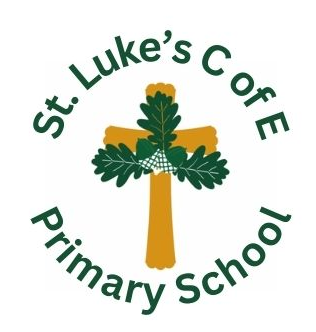Maths
Maths at St Luke's Primary School
At St Luke’s, we are committed to developing confident and resilient learners who see the value of maths in everyday life. Our goal is for children to appreciate the power of mathematics, think logically, and apply their skills to solve real-world problems with confidence.
Our Vision
We want every child to:
-
Develop confidence, resilience, and a passion for mathematics, seeing its value in everyday life.
-
Gain fluency in number facts, calculations, and mathematical techniques.
-
Apply mathematical knowledge with initiative to solve problems in a variety of contexts, including unfamiliar situations.
-
Reason logically, make connections across concepts, and use precise mathematical vocabulary to explain ideas.
-
Persevere when faced with challenges, embracing mistakes as opportunities for learning and growth.
How We Teach Maths
At St Luke’s, we provide a carefully structured maths curriculum, supported by White Rose Maths and Classroom Secrets, which allows children to build skills step by step. Lessons typically include:
-
Clear modelling and guided practice – teachers use White Rose Maths small steps to demonstrate methods and strategies.
-
Fluency and problem-solving – children practise number facts, calculations and techniques, supported by Classroom Secrets and Third Space learning activities.
-
Reasoning in context – pupils explain their thinking using precise mathematical vocabulary and explore connections across concepts.
-
Use of varied representations – models, images and resources that deepen understanding and support different learning styles.
Supporting All Learners
Every child is given the opportunity to succeed. Through carefully planned adaptations, scaffolds, and targeted support, we ensure that children of all abilities can access the same curriculum and make strong progress.
Assessment and Progress
Assessment is ongoing and purposeful. Teachers use daily feedback, alongside more formal assessments, to track progress and set next steps. Targets are shared with pupils and parents so that achievements can be celebrated and areas for growth supported.
Early Years Foundation Stage
In reception, we place a strong focus on Number and Numerical Patterns, ensuring that all children develop secure building blocks for future learning. Through frequent and varied opportunities, including imaginative play, outdoor learning and the use of manipulatives such as Numicon, Cuisenaire Rods and Ten Frames, children build a deep understanding of number and a rich mathematical vocabulary. Alongside this, they explore shape, space and measures, developing reasoning skills across all areas of mathematics. This balanced approach nurtures curiosity, confidence and readiness for the next stage of their mathematical journey.
Multiplication Tables Check
In Year 4, all children take part in the national Multiplication Tables Check. This is an online assessment designed to see how well pupils know their times tables up to 12 × 12. The check is made up of quick-fire questions, and children are given plenty of practice in school so that they feel confident and prepared. The purpose of the test is not to put pressure on pupils but to help identify any gaps in their knowledge, so we can give them the right support. Being fluent in times tables is really important, as it underpins so much of the maths children will encounter in upper Key Stage 2 and beyond.
Parents can help at home by encouraging regular practice in short bursts, using games, songs or apps such as Times Tables Rock Stars, and by spotting opportunities to use times tables in everyday life, like sharing, shopping or cooking.
Beyond the Classroom
At St Luke’s, we know that maths is all around us and learning doesn’t stop at the classroom door. Children use their maths skills in real-life situations, like measuring ingredients when cooking, spotting shapes in the environment, or handling money in role play. We make links across the curriculum too. For example, using maths in science experiments or collecting data in geography. Special events, maths days, and fun challenges also give children the chance to see how exciting and useful maths can be in the wider world. This helps them grow in confidence and understand why maths really matters in everyday life.
